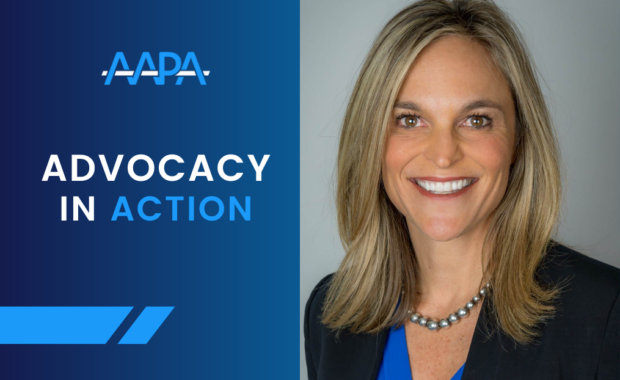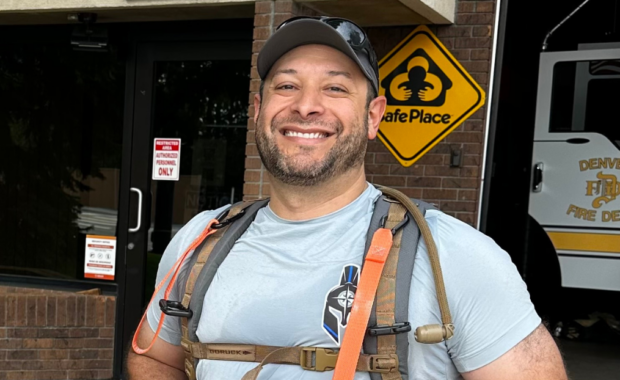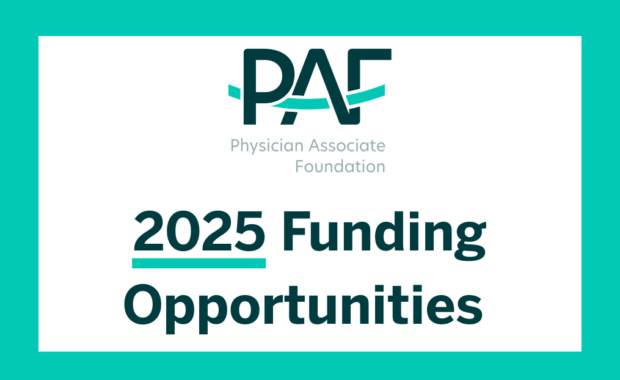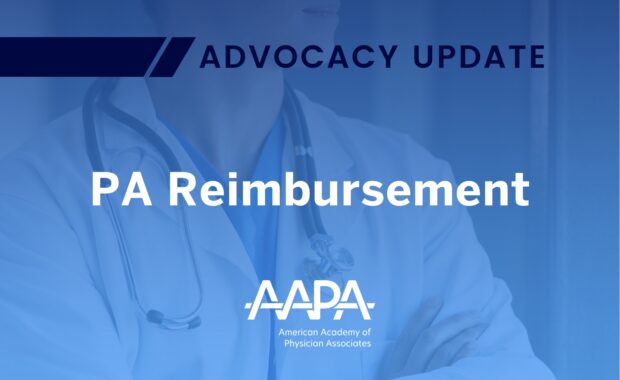Two Fellowship Awards Available for Preceptors Serving Underserved Populations
The Importance of Precepting: William H. Marquardt Community Access Fellowship
August 23, 2019
By Kate Maloney
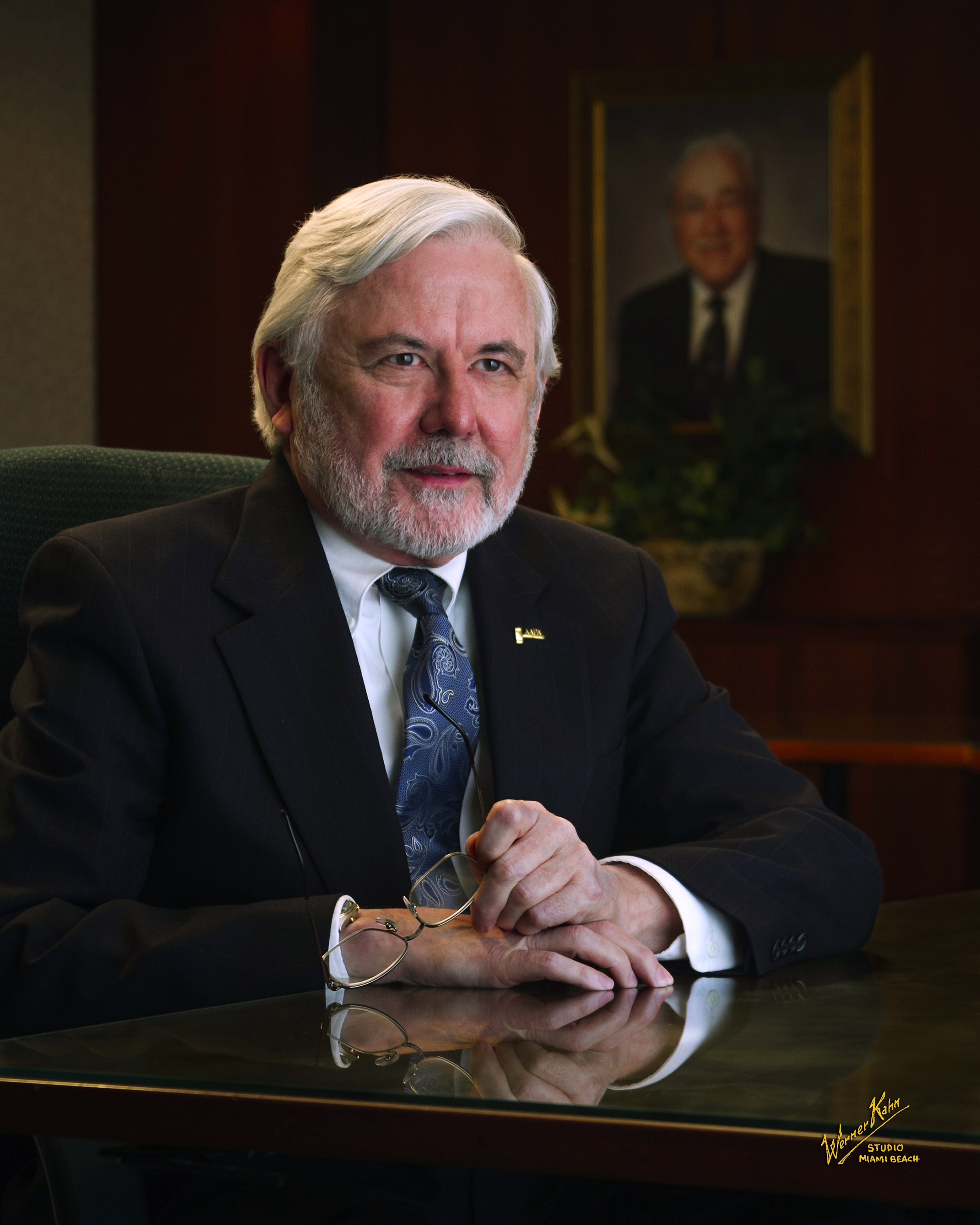
William Marquardt, MA, PA-C Emeritus, DFAAPA, has been a committed advocate for the PA profession since 1974. After spending 17 years practicing as a PA in the Air Force and then at George Washington University, he shifted his focus to PA education in 1994. He currently serves as Associate Dean and PA Department Chair at Nova Southeastern University in Fort Lauderdale, Florida.
Marquardt believes that, since the earliest days of the profession, PAs have made a fundamental difference in healthcare. His dedication to the profession and PA education led him to make a donation through the PA Foundation to establish the William H. Marquardt Community Health Access Fellowship. The fellowship aims to benefit PAs serving in mentoring and/or precepting roles who are dedicated to promoting accessible primary and preventive healthcare amongst underserved populations. Two fellowship awards of $2,500 each are available. Those interested should apply – or nominate someone else – by September 13, 2019.
Marquardt shares his motivations for establishing the fellowship, and why he thinks precepting is so important to the PA profession.
Q: Why did you create this fellowship?
A: This fellowship offers an opportunity to appropriately recognize PA preceptors, and others in the community, who are contributing their time and energy to hosting students in their practices and providing necessary learning opportunities. Learning with, and from, experienced and motivated PAs is crucial to students’ career transitions.
Q: How did your career shape the direction of the fellowship?
A: After leaving clinical practice and becoming involved in PA education, I spent several years identifying and working with clinical preceptors in the community. I came to see the critical role experienced mentors play in professional development as well as assisting in honing clinical skills. Later, despite playing more of an administrative role, I continued to focus on the community, hands-on learning aspect of PA education and looked forward to being able to support those efforts if possible.
Q: What do you hope the Fellows will accomplish?
A: The Fellows will be recognized as fundamental leaders in their profession, contributing in ways that often go overlooked and taken for granted when, in fact, they serve a critical role in every PA program’s success. Their efforts in providing the proverbial high-quality, cost-effective and accessible healthcare will hopefully be linked closely with their specific efforts to promote student learning. This is historically countered by perceptions of reduced efficiencies and even decreased practice revenue in sites dedicated to student learning, but these individuals will have appropriate recognition and support in their professional efforts.
[AAPA HOD Responds to Preceptor Shortage with Increased CME]
Q: Why is precepting so important?
A: Simply put, compassionate, quality healthcare and clinical skills can’t be learned from books or sitting in a classroom. It can only be attained through working with compassionate and caring providers willing to share their knowledge and experiences. Just as patients will reflect on who their most respected providers are, I think every medical professional has a special place in their heart for someone whom they learned from, and with.
Q: Why did you choose to focus the fellowship on underserved areas?
Despite many decades of efforts and initiatives to promote access to adequate and appropriate healthcare, millions continue to lack even basic primary/preventive healthcare. Underserved areas include both rural and urban communities, and despite continued political rhetoric, many in need remain shut out. Recognizing PAs, and others, who are making a difference in underserved areas should remain a major focus. And, promoting and recognizing those efforts by placing students in those environments increases the likelihood that upon graduation the new professionals will provide the same services to those communities. I’ve seen several students over the years who participated with the National Health Service Corps for the loan repayment opportunities, but then renewed their commitments voluntarily when noting the needs of the community served and the impact they had made.
[Clinical Preceptor Recognition Program]
Q: How do you recommend getting more PAs involved in precepting?
A: Perhaps it will be helpful to simply promote the gratification of assisting in learning and helping to launch new careers by citing the efforts of several exceptional individuals through these Fellows. There will still be practices and institutions that perceive providing learning opportunities for students will limit productivity and/or revenue, but those who are most instrumental in continuing to provide opportunities despite those perceptions know this need not be the case and that professional pride and a sense of professional achievement will prevail.
The PA Foundation is accepting applications for the William H. Marquardt Community Health Access Fellowship through September 13. Two fellowship awards in the amount of $2,500 will be distributed. Check the eligibility and requirements and start your application today!
Read More
Husband and Wife MDs Awarded 2019 AAPA/PAEA Preceptors of the Year Award
Category 1 CME for Preceptors
5 Tips for Surviving Your Clinical Rotations
Kate Maloney is senior manager for AAPA Corporate Communications. Contact her at [email protected].
Thank you for reading AAPA’s News Central
You have 2 articles left this month. Create a free account to read more stories, or become a member for more access to exclusive benefits! Already have an account? Log in.
